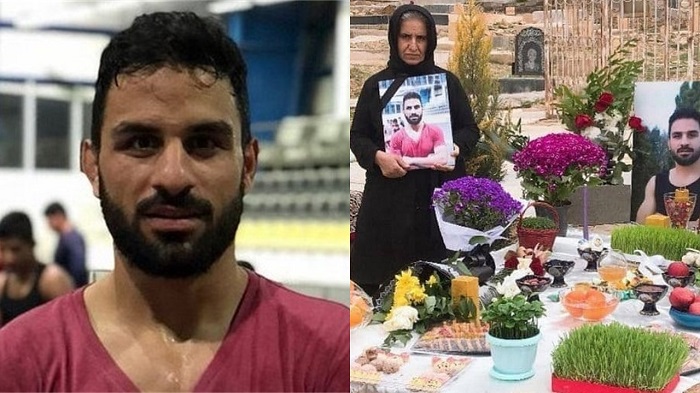
The National Council of Resistance of Iran (NCRI) reported on September 12 that as Iranian citizens acknowledged the first anniversary of the execution of Iranian wrestling champion, Navid Afkari, it was announced that Iranian President Ebrahim Raisi, who was involved in the execution, is set to address the United Nations General Assembly on September 20.
The NCRI said, “Navid Afkari was arrested during the major Iran protests in 2018 in Kazeroun along with his two brothers. Navid was falsely accused of killing a security guard based on a confession extracted under the month of torture. Navid had denied having killed the security guard and appealed to the Judiciary.”
They said the Raisi, who was then acting as Judiciary Chief, declined Afkari’s appeal and despite objections internationally, he was ultimately executed. His brother Vahid subsequently requested a retrial which was also rejected by the Iranian regime’s Supreme court. Saeid Dehgan, the Afkari brothers’ lawyer posted on Twitter saying that the retrial was rejected, even though the case had many contradictions. He said that ‘there were enough legal reasons to accept a retrial as the verdict contains 24 contradictions and three lies’.
The NCRI said, “Mistreating political prisoners, killing them secretly, and violating international norms, has been the regime’s modus-operandi. Raisi, now the regime’s president, has been known for fully implementing the regime’s doctrine in dealing with prisoners of conscience.”
Raisi began his career in the regime in the 1980s, first serving as a prosecutor where he issued many death sentences. In the summer of 1988, he became a member of the ‘death commission’ in Tehran, where under orders from then-Supreme leader Ruhollah Khomeini, he sent 30,000 political prisoners to their deaths.
His penchant for brutality is what led him to become Supreme Leader Ali Khamenei’s preferred candidate for the presidential role in this year’s election, and on June 19, he was announced as the new Iranian president, formally being inaugurated in early August.
Following his selection, Amnesty International Secretary-General, Agnès Callamard stated, “That Ebrahim Raisi has risen to the presidency instead of being investigated for the crimes against humanity of murder, enforced disappearance and torture, is a grim reminder that impunity reigns supreme in Iran.”
The NCRI said, “In recent years, the killing of Iranian protesters in November 2019, the subsequent mistreatment of the detained protesters, and the execution of Navid and other political prisoners are examples of the devastating impact of the world community’s inaction and the crisis of impunity in Iran.”
Calls continue to grow for the international community to hold Raisi accountable for his human rights violations and end the impunity that surrounds the officials within the regime. By exercising universal jurisdiction and launching independent investigations, Raisi and other regime officials could finally be prosecuted for their crimes against humanity.
Agnès Callamard went on to say, “It is now more urgent than ever for member states of the UN Human Rights Council to take concrete steps to address the crisis of systematic impunity in Iran, including by establishing an impartial mechanism to collect and analyze evidence of the most serious crimes under international law committed in Iran to facilitate fair and independent criminal proceedings.”